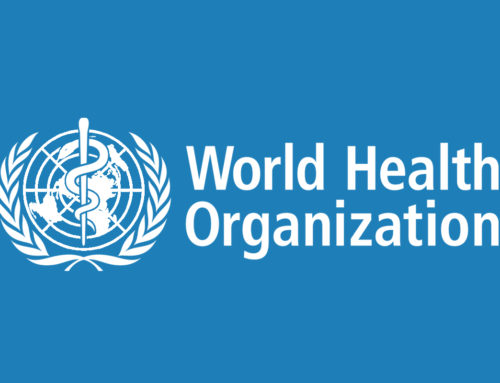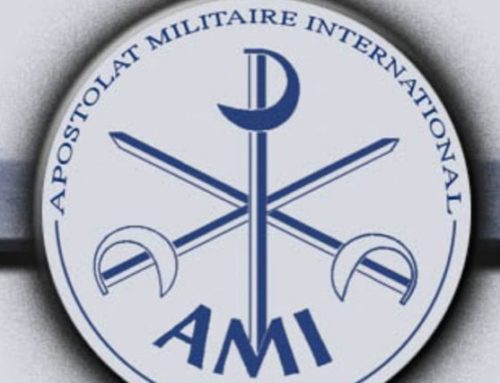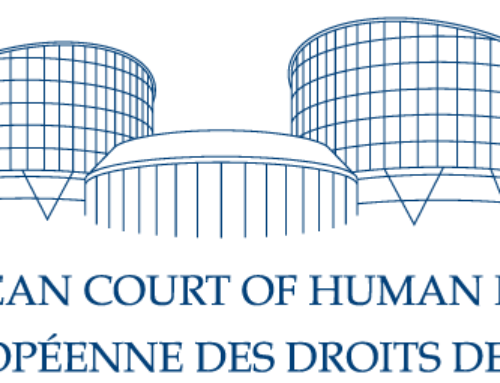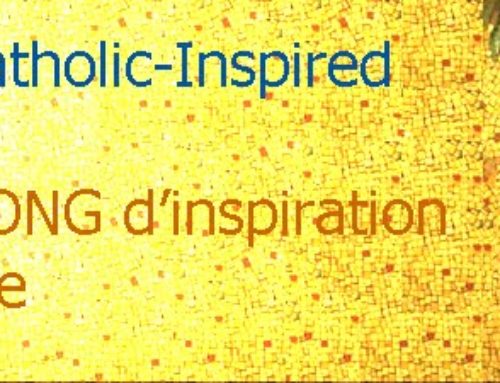ETHICAL AND MISSIONARY FORMATION OF MEDICAL STUDENTS IN KERALA, INDIA
According to the Medical Council of India (MCI)1, there are 412 medical colleges with 49,840 seats every year. In other words, at any given point of time, nearly 0.25 million medical students are studying in the medical college campuses of India. Unlike in the west, in India, along with issues related to poverty, there are multiple languages, religions, and cultures. In spite of all the technological advances, there are still lots of people who do not have access to even essential healthcare, in India. Therefore, in addition to ethical practice of medicine, students and doctors need to be sensitized on the need for distributive justice in healthcare. It is easier to foster these values when they are young, especially during their medical education period.
St John’s Medical College, Bangalore, under the Catholic Bishops’ Conference of India (CBCI) and CMC Vellore, under the Protestant network, give some amount of training for their medical students on ethical practice and missionary commitment. Most of the other medical colleges in India do not give much attention for the ethical formation of the students.
In Kerala, where maximum percentage of Christians in India reside, there are 24 medical colleges with 2850 seats every year2. Of this 3 are Catholic Medical Colleges with a total of 300 seats every year. For the past 10 years, some amount of work has been done among the medical students and young doctors in Kerala, especially by the Jesus Youth movement. This write up focuses on some of the initiatives among medical students in Kerala. These initiatives can be divided into three categories – PROFICUUS (a program conducted for first year students), REVIVE (program conducted for second to fourth year students) and MISSION EXPOSURE (before internship).
PROFICUUS
During the first decade of the new millennium (2000-2010) numerous professional colleges sprung up in Kerala, in the private sector. The total number of medical colleges suddenly increased from 5 to 20 and engineering colleges from 23 to 250. There was a great need to care for numerous students in professional colleges, particularly their spiritual needs. After some prayer and consultations a new program called ‘PROFICUUS’ was conceived, by some of the young people of the Jesus Youth Movement. The first Proficuus was organized in 2004 for the medical students who joined the course in 2003. Thereafter Proficuus was conducted at least once in every year. Till date, 11 such Proficuus’, with an average participation of 100 students, had been organized touching the lives of several medical students over the past decade.
Target group
In India, MBBS course is for a period of four and a half years followed by one year of internship.
During the MBBS course there are four university exams – preclinical (Anatomy, physiology and Biochemistry), paraclinical (Pathology, microbiology and pharmacology), part 1 clinical (ENT, Ophthalmology, community medicine, etc) and Part 2 clinical (Medicine, Surgery, OBG
………………………………………………….
1 http://www.mciindia.org/InformationDesk/ForStudents/ListofCollegesTeachingMBBS.aspx accessed on July 28, 2015
2 https://en.wikipedia.org/wiki/Medical_college_in_India accessed on July 28, 2015
…………………………….
1 and pediatrics). Soon after their preclinical exams the medical students get a gap of about two months before the paraclinical classes begin. These are the students who mainly attend the Proficuus program.
What happens in Proficuus?
The following are the areas covered in a typical Proficuus program.
During this program the participants are assisted to have a personal experience of Jesus.
This is facilitated through a retreat where they are gradually led to a deeper understanding and experience of the love of God through word of God, Sacraments, music, Eucharistic adoration, moments of silence, inner healing experience, Baptism in the Holy Spirit experience and so on.
Some basic inputs on medical ethics is also given (Catholic teachings on beginning of life issues, end of life issues, family planning etc);
Basic catechesis (Church, sacraments, prayer etc);
Self awareness and a few other relevant topics.
Introduction to the Jesus Youth movement, its network, history, spirituality, so that they become part of the Movement so that they have a support group to accompany them in their faith journey during the 5 years of their student life in the campus.
The dynamics of the program take into consideration the needs of the young people with vibrant music, group discussions, games, action songs, activities and so on.
The whole program is planned, organized, and implemented by the students themselves, thus following the principle of peer evangelization.
Those who attend Profficuus are gradually integrated into the prayer groups in the medical colleges.
Status of the Profficuus project
This project is being done every year with very good response from the students
REVIVE SUNDAYS
Many students who attended Proficuus became part of the prayer groups in the medical colleges.
Out of necessity, in order to hold together the students in their faith journey till they reach the end of their course, project ‘REVIVE’ was initiated. The first Revive conference was held in
December 2013. Subsequently by 2014, the students decided to conduct 3 Revive Sundays at 4 locations in Kerala (Calicut, Trissur, Kochi and Trivandrum). Students are trained on certain relevant topics and they themselves organize and facilitate the revive Sundays.
Context and Intervention
Revive Sundays envision a 4 year process covering over 20 modules that focus on transformation through behavioral change. This is accomplished by the “Knowledge – Process – Habit” model.
The trainings comprise of:
– Knowledge regarding the need for change
– The most effective processes involved in achieving that change
– ‘Triggers’ that make these processes permanent habits.
– Once the desired values become a habit and becomes part of one’s character, the
individual becomes an agent of transformation in the institution and the community.
2 Some of the topics envisioned for Revive are:
– SELF AWARENESS (Emotional Resonance, Self Confidence, Self Awareness);
– SELF MANAGEMENT (Self Deception, Managing Yourself, Paradigm Shift, Integrity, Stress Management, Motivation, Creativity, Learning Skills, Critical Thinking, Decision
– SOCIAL AWARENESS (Empathy, Service Orientation, Compassion);
– BIO ETHICS (beginning of life, end of life, distributive justice etc)
Methodology
Revive Sundays comprise of one-day workshops that happen once every 3-4 months. The Trainings are conducted with rich audio visual content, activities, exercises and interactive sessions. It is envisioned to have an Email/SMS based follow-up mechanism that ensures that the processes are followed till the next training. Follow up content to be read and watched accompany the trainings. The participants also are required to undertake periodic surveys with which to measure the effectiveness of the training. The
trainings also use some peer based learning mechanisms to build the students as resources for the future.
Status of the Revive project
Due to various constraints, after a few such meetings, this project is struggling to sustain.
MISSION EXPOSURE
This part of the project is done when these students finish their final exam, where they get a gap of about 1-2 months before the beginning of internship. This program has two parts – a week of orientation followed by a three week exposure to a mission area, especially the northern part of India. This project is going on every year since 2003, with an average of 8-10 students per
What happens during Mission Exposure?
During this program the students are given some inputs on the missionary work of the Church, with focus on the new initiatives, so that they consider missionary life as a future choice in the process of transitioning from student life to professional life. In addition to the ‘Action-Reflection-Action’ methodology, the dynamics of this program includes the usual Jesus Youth methodology used for young people.
Status of the Mission Exposure project
This project is being done every year with reasonable response from the students
MOBILIZATION AND FINANCE
All these projects are planned, organized, and implemented by the students themselves under the guidance of Seniors and Pastors, thus following the principle of peer evangelization. Finance is partly mobilized from the participants as registration fees. Majority of the support is from seniors who are doing internship or working after their studies.
CONCLUSION AND WAY FORWARD
Even though some amount of ethical and missionary formation happens among the medical students, there is lot of uncertainty regarding their transition from student life to professional and family life. Even this work happens mostly in Kerala, only one of the 29 states in India. In addition, most of these activities happen informally as a peer initiative, without much contribution from the authorities of the Medical colleges, and happens outside the formal curriculum.
Therefore, some of the challenges include expanding the existing work to more students (Catholic and non-Catholic), to all the States of India, and also networking with young doctors who have transitioned from student life to professional life. With its vast experience over the years in many countries, these are some of the areas FIAMC can provide guidance and assistance for India.
Rev. Dr. Mathew Abraham, CSsR, MD,
Health Secretary, Catholic Bishops’ Conference of India
Member, Committee for Medical Students, FIAMC
August 1, 2015










